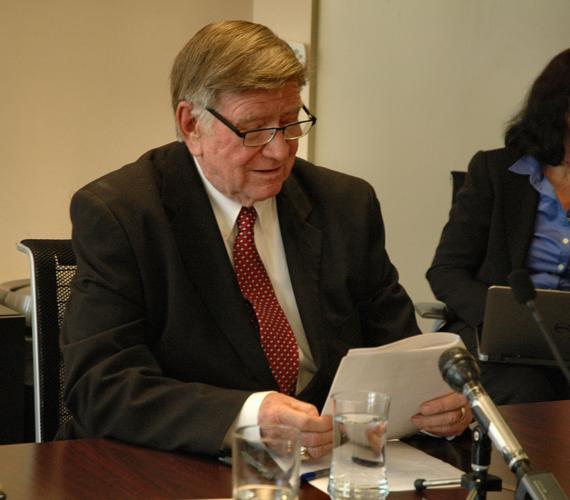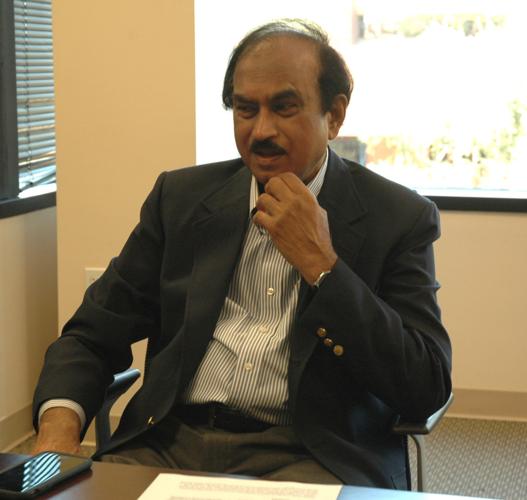PHOENIX — “Dreamers” at the state’s three universities will continue to pay the same tuition as other Arizona residents, at least for now, despite a court ruling.
The Arizona Board of Regents voted Thursday to continue its policy of interpreting Arizona law to say that those in the Deferred Action for Childhood Arrivals program are entitled to the same legal — and financial — considerations as anyone else who meets state residency requirements.
DACA, created in 2012 by the Obama administration, allows people who arrived in this country illegally as children to remain if they meet certain other conditions. Students enrolled in DACA are known as “dreamers”; there are less than 300 in Arizona’s state university system.
Thursday’s vote comes a week after the Arizona Court of Appeals concluded a similar tuition policy at Maricopa community colleges violates Proposition 300. That 2006 voter-approved law says those in the country illegally are not entitled to in-state tuition. The same law prohibits tuition waivers, scholarships or any other aid funded with public dollars.
But regents Chairman Bill Ridenour noted that the Maricopa board voted Tuesday to appeal that ruling to the Arizona Supreme Court. Ridenour said he wants to wait to see what the state’s high court decides before making any policy changes.
He also noted that students begin returning to campuses for the fall semester in August.
“We are very appreciative of the need for some kind of certainty for those students with our universities,” Ridenour said. He said there is no reason the current tuition policy, adopted two years ago, should be scrapped unless and until there’s a final Supreme Court ruling.
Only Regent Jay Heiler voted against keeping tuition for “dreamers” at the in-state rate.
“We have a Court of Appeals decision founded largely in state law as enacted by the voters,” Heiler said. “I feel this board needs to honor that.”
But Heiler said he would not require DACA recipients to pay the full out-of-state rate.
He pointed out that the board already has a policy allowing students who graduate from Arizona high schools, but do not meet other residency requirements, to pay a “differentiated rate.”
In essence, this is designed to cover the actual costs of educating students, which would avoid the prohibition against subsidized tuition in Proposition 300. The regents have set that rate at 150 percent of in-state tuition.
Other regents said they were content to leave the tuition for “dreamers” where it is right now.
“I believe that until we have settled law that is contrary to our ability to do this, that it’s the right thing for us to continue to offer the in-state tuition,” said Regent Rick Myers.
Regent Ron Shoopman agreed. “One of the things this board strongly believes is that we want to provide access and as low a ... tuition as possible within the confines of the reality that we find ourselves, so all students who attend the universities and especially those that graduate, have better futures guaranteed,” he said. “We want that for all our young people.”
Regent Ram Krishna said there’s another fact to consider.
He pointed out that both the University of Arizona and Northern Arizona University have programs designed to guarantee incoming students that their tuition will remain unchanged for the four years needed to get an undergraduate degree.
“We need to comply with that,” Krishna said.
Arizona State University has no such policy but has promised to limit year-over-year increases.
Ridenour, who is an attorney, said after Thursday’s meeting that he is making no predictions on what the Supreme Court will conclude.
“I think it will be well briefed,” he said. “Obviously, there’s a lot of politics involved. There’s laws involved.”
He agreed with Heiler on one key point: The best outcome would be for the federal government to clarify the status of DACA recipients.
Arizona Attorney General Mark Brnovich has argued — and the appellate court agreed — that the decision by the Obama administration not to deport “dreamers” did not give them legal immigration status, making them ineligible for in-state tuition.
During the presidential campaign, Donald Trump vowed to rescind DACA on his first day in office. Five months later, the program remains, but his administration has said it’s studying what to do next.
In a letter Thursday to U.S. Attorney General Jeff Sessions, the attorneys general from 10 states urged that DACA be phased out because it was enacted “without any statutory authorization from Congress.”
Arizona’s Brnovich was not among those who signed the letter. But he has argued in court documents, while seeking to deny driver’s licenses to “dreamers,” that there is no legal authority for DACA.







